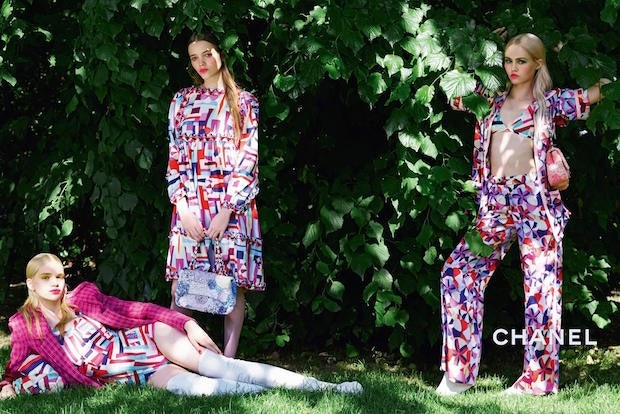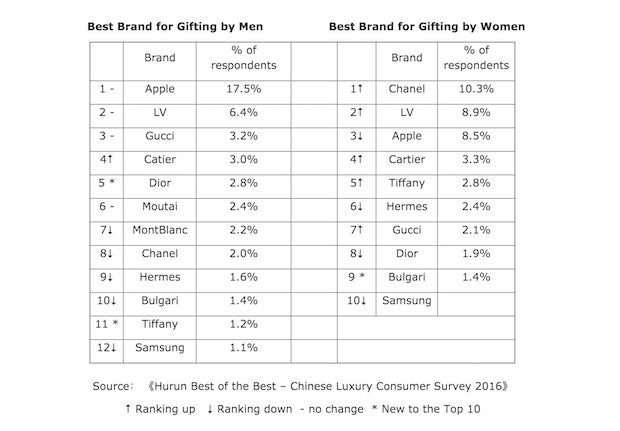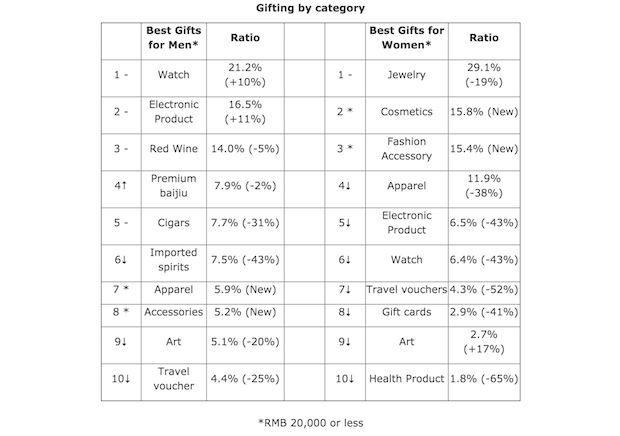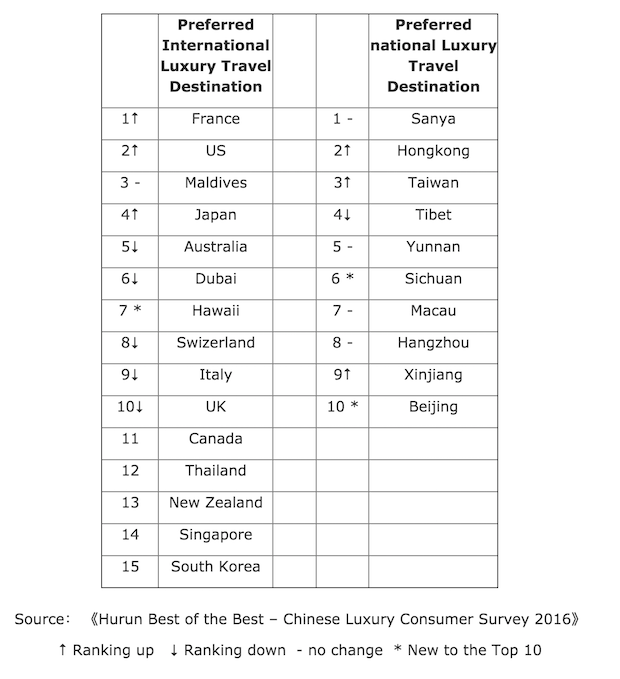
After a double-digit slump in luxury gift spending among China’s wealthy over the past two years, their gifting was on an uptick in 2015, according to Hurun Report’s recently released annual Chinese Luxury Consumer Survey.
The survey of 458 individuals with a net worth of 10 million RMB (US$1.52 million) or higher found that luxury gift-giving by men increased 15 percent and by women increased 24 percent over the past year. This increase marks the beginning of a rebound from a two-year decline totaling 30 percent that was reported in last year's survey.
While luxury gifting is often associated with corruption in China, the spending increase occurred even as the Chinese government’s anti-corruption campaign continued over the course of 2015. The report comes at a time when some brands are saying they’ve been seeing a slight recovery in mainland China sales—last week, both Burberry and Richemont reported that the mainland returned to growth in the three-month period ending in December.
After Apple ascended to the top of both the men’s and women’s lists as the most-favored brand for gifting last year, the electronics company maintained its rank of number one for men and dropped down to number three for women on this year's list. This year, Chanel took the crown as the women’s favorite, followed by Louis Vuitton. Louis Vuitton also remained in second place for men, followed again by Gucci in third.

Apple’s spot at the top for men isn’t surprising give the fact that watches and electronics are the first and second most popular gift categories for men, followed by red wine. These categories rank the same as they did last year, while the top three categories for women remained the same as well—jewelry, cosmetics, and fashion accessories.
The only Chinese brand to make the list once again this year was Moutai, which was listed as the sixth most popular brand for men. After the premium baijiu industry was hit hard by the anti-corruption campaign, the spirit climbed to the fourth most popular gifting category for men.

The survey also asked respondents about their favorite travel locations, finding that France, the United States, and the Maldives are their top three international destinations. Japan, which saw a massive influx of Chinese luxury shoppers over the past year, moved up to fourth place in the rankings, surpassing Australia. Tropical Sanya in Hainan remained at the top of the rankings for domestic travel destinations. Hong Kong and Taiwan, which were both categorized as “domestic,” moved up the rankings to second and third place, respectively.

While Chinese consumers’ love for luxury clearly didn't decrease this year, their faith in China’s economy faltered slightly. The percentage of those who are “extremely confident” in the economy decreased from 35.8 percent last year to 27 percent this year. Despite China’s stock market plunges, currency devaluation, and slowing GDP growth, however, more than 80 percent of the millionaires surveyed said they remain “confident” in the economy.